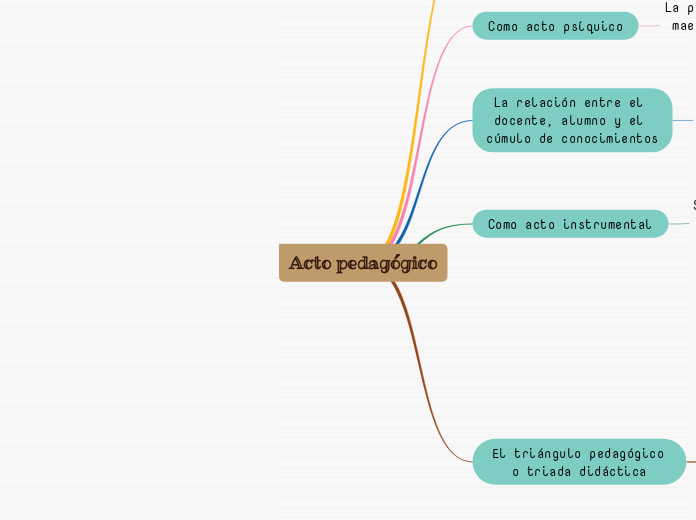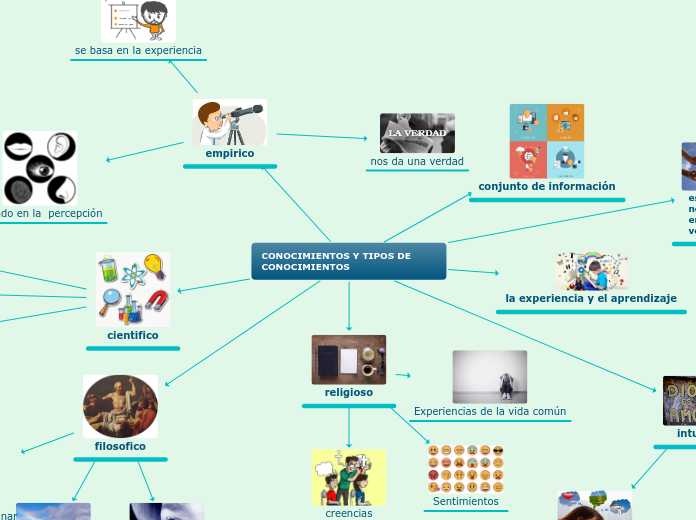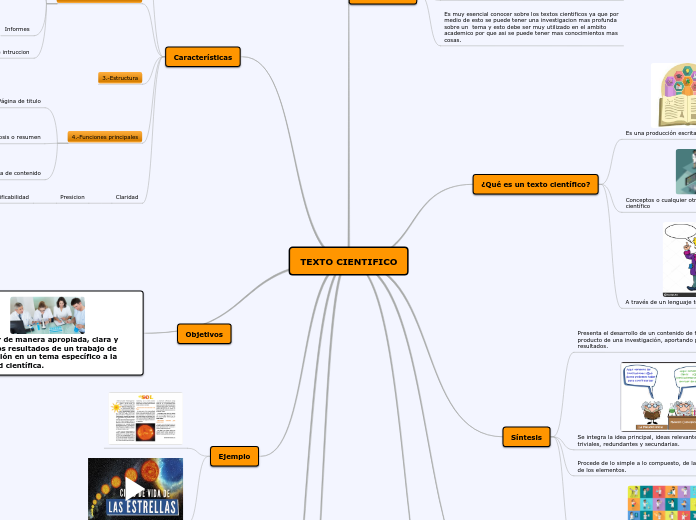Acto pedagógico
To name your story, you have to think about the overall message and what you want your audience to understand from the story. Also, make it relevant and easy to remember.
El triángulo pedagógico o triada didáctica
Se producen relaciones que se dan de manera simultánea
Aprendizaje
La relación entre el alumno y el conocimiento
Entrenamiento
La relación entre el profesor y el alumno
Enseñanza
La relación entre el profesor y el conocimiento
Componentes
Contenido
Maestro
Alumno: Puede ser un grupo amplio o reducido
Tiene sus raíces en el siglo XIX (1850)
Propuesta por Jean Houssaye, profesor francés
Como acto instrumental
The ending of a story is essential. We all know that if the ending is weak, what happened before loses its importance. So make it unpredictable, but fair. A resolved ending answers all the questions and ties up any loose threads from the plot.
Se agrupa las variables con las que se han trabajado
This is the moment when the main character surpasses the last obstacle and finally faces their greatest challenge.
The climax usually follows one of these patterns:
- realization
- resolution
- choice
Type in your answer.
La evaluación
Tecnicas de enseñanza
Las actividades
El orden de los contenidos
Propuestas pedagógicas
La relación entre el docente, alumno y el cúmulo de conocimientos
Cuya finalidad es obtener un aprendizaje significativo
Sujet secondaire
Usando estrategias de aprendizaje
Como acto psíquico
The middle of the story is where you add layers of complications that will lead to the end. Reveal more about the character's journey. Did their personality go through changes? How did they overcome the challenges? And as you build up the story’s central conflict, make it more personal to that character. Also, from the middle act, you have to lead into the final act.
La presentación que un maestro tiene de sus alumnos
Your character(s) need(s) motivation in order to solve the challenge(s).
Las primeras imágenes como alumno
Secondary characters also might have motivs beacuse of which they may cross path with main character or which might trigger them to help the main character.
Su mundo infantil
Secondary characters might also have motives that lead them to cross paths with the main character or which might trigger them to help the main character.
Sus deseos inconscientemente
Why does your character need to confront this challenge? What does he/she expect to accomplish by solving it?
See a few examples:
- will marry in 3 days
- can fix the mistakes of the past
Como acto social
In the beginning of the story (or the exposition), you will need to introduce the setting and characters. You might also want to introduce the main conflict. This part of the story is important because it gives the reader necessary background information and maybe even a first insight into a character’s personality.
Aparece en el interior del acto pedagógico
The setting (time & place) of a story can change throughout the plot.
División del trabajo
La organización de la escuela










